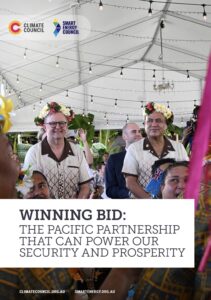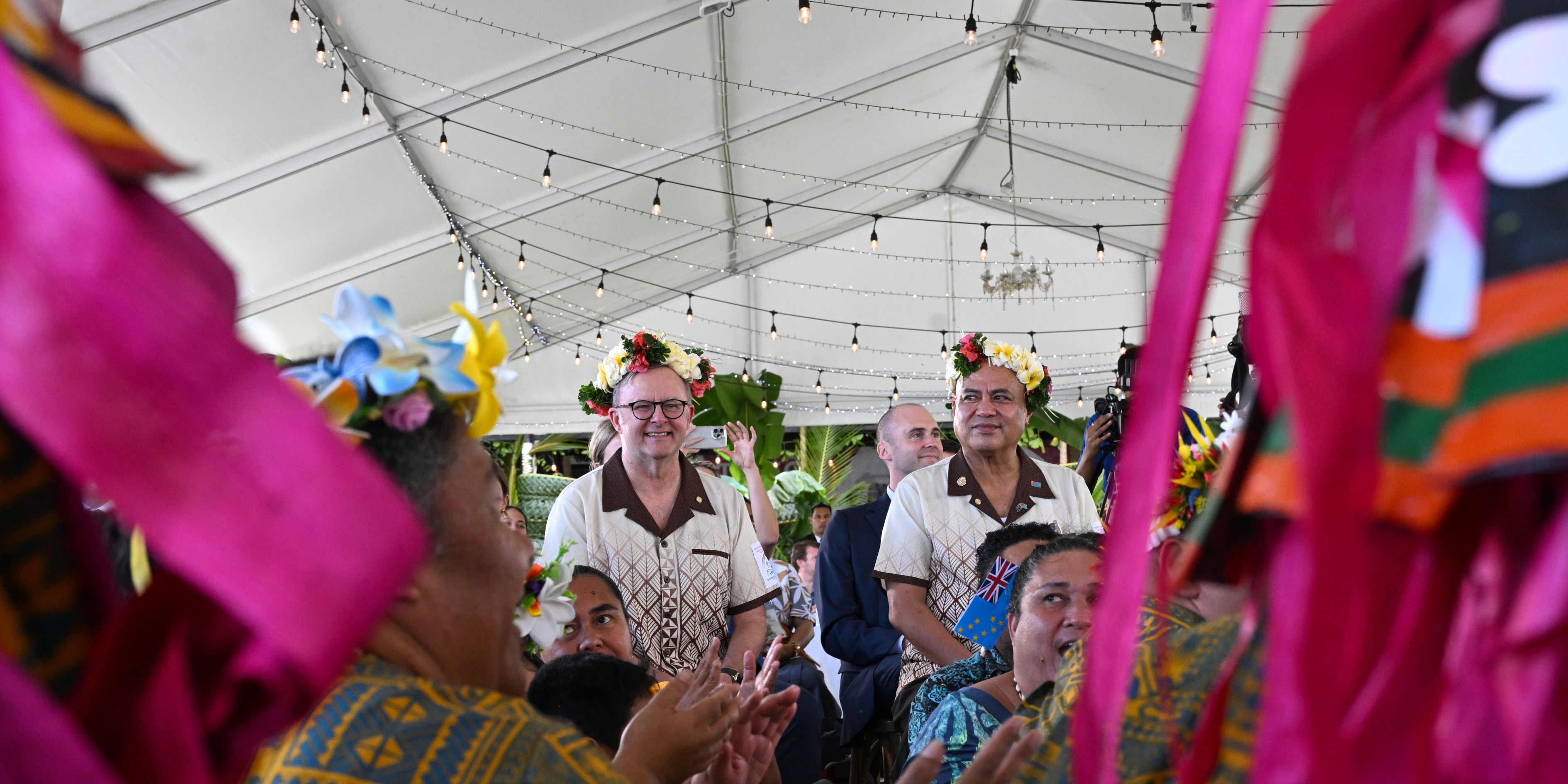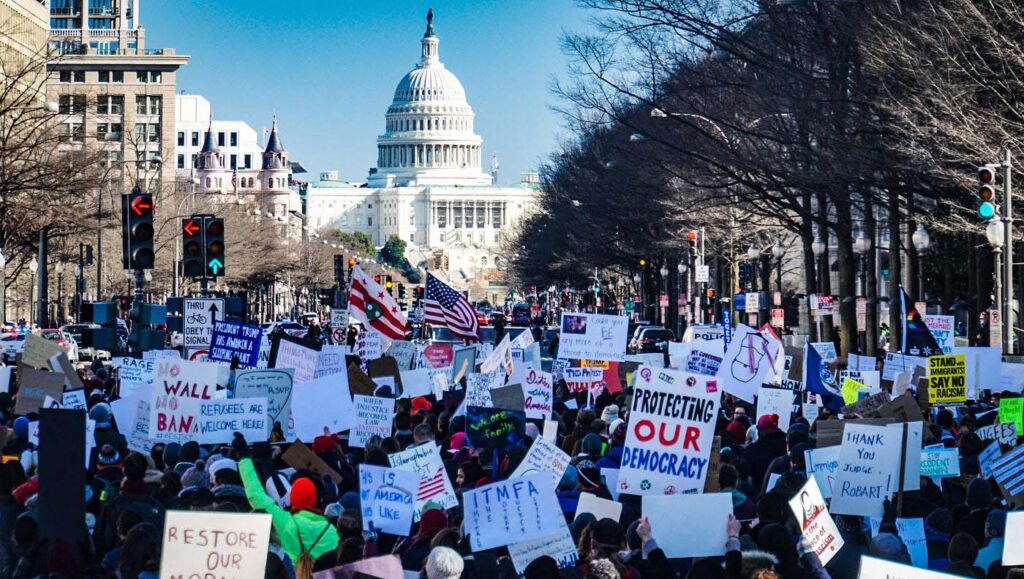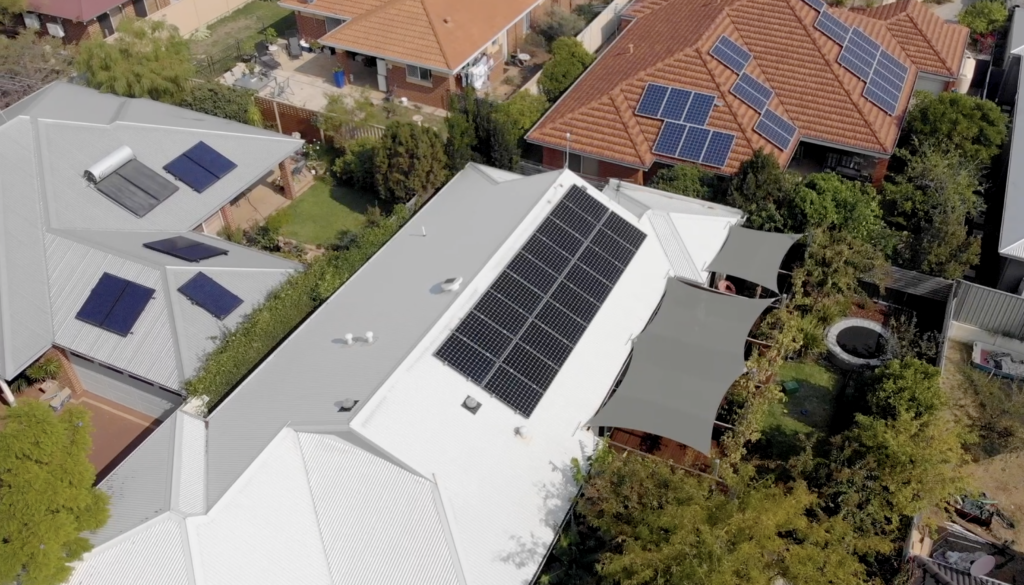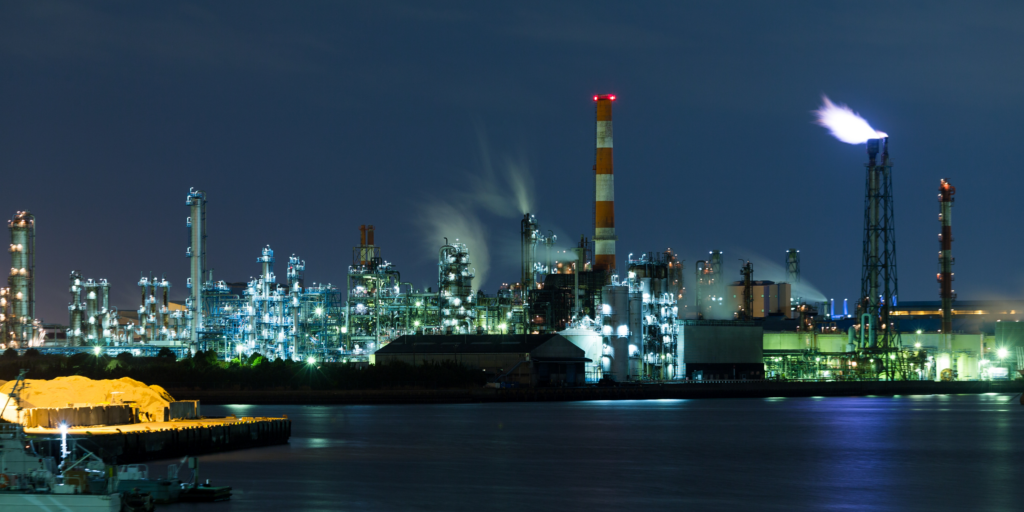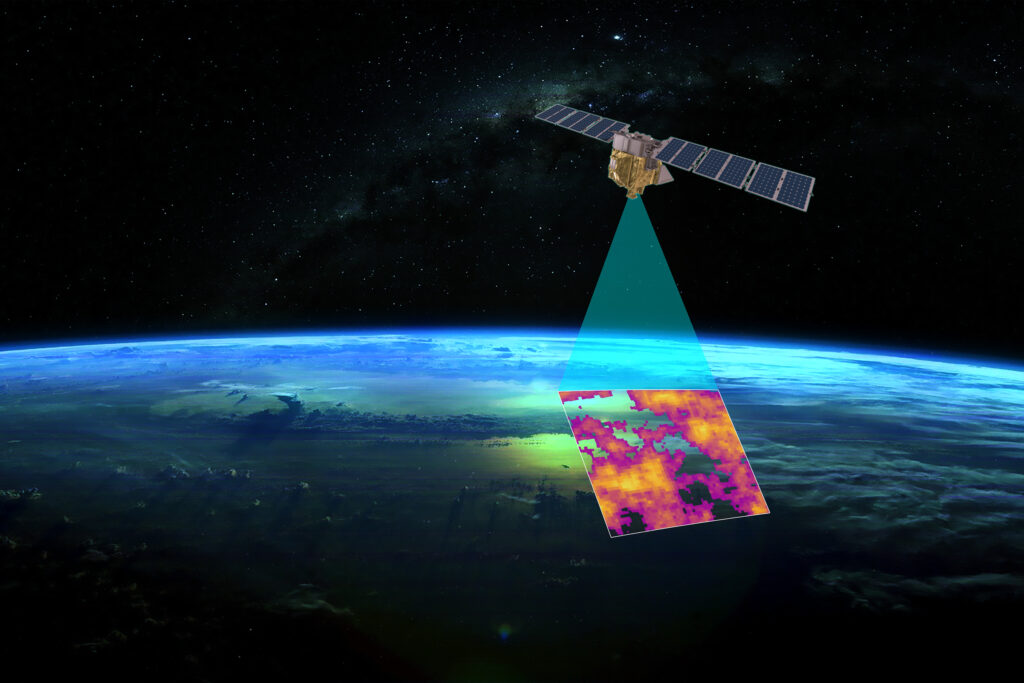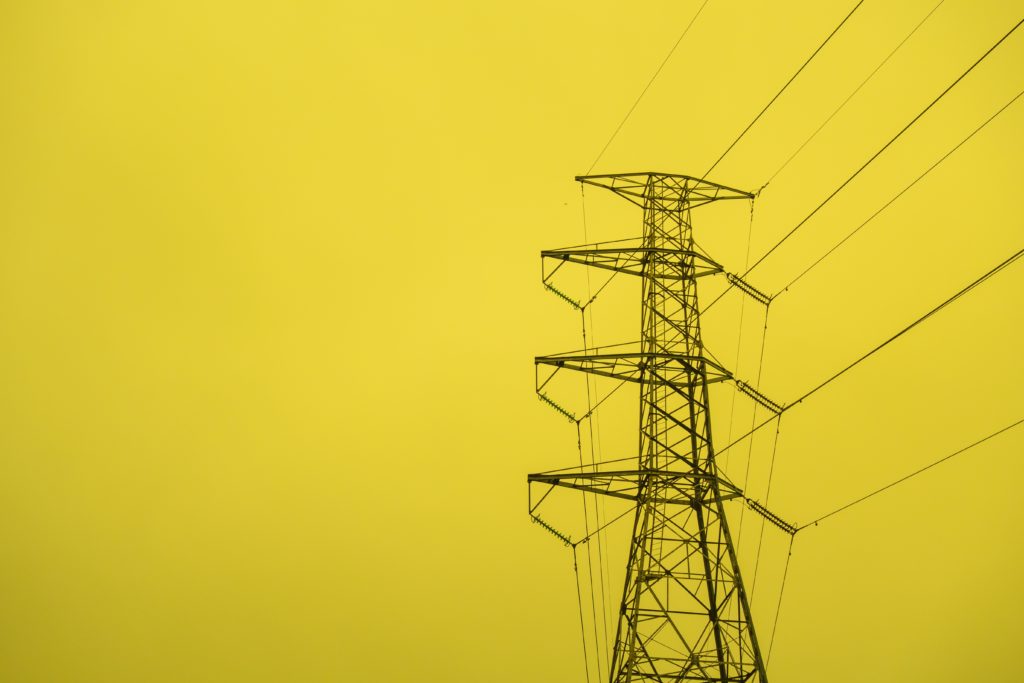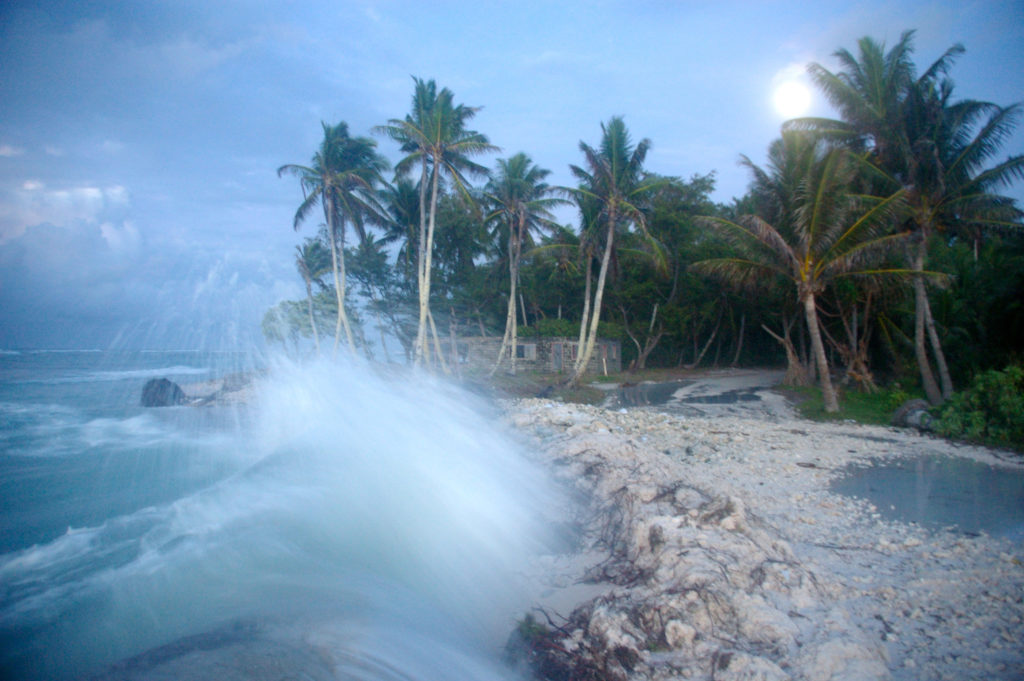When scientific consensus on global warming emerged in the late 1980s, Australia was quick on the uptake. In 1989, Prime Minister Bob Hawke declared that “Australia’s concern for the environment doesn’t end at our shores” and that Australia “will be taking the lead in developing international conventions on greenhouse gas emissions.” Three years later, the United Nations Framework Convention on Climate Change (UNFCCC) was born. And just like Bob Hawke promised, Australia was one of the first nations to sign up and ratify the treaty.
However, that initial burst of Aussie enthusiasm and leadership didn’t last long. In almost three decades of Conference of the Parties (COP) meetings since then – where members of the UNFCCC discuss progress on cutting climate pollution and negotiate new commitments – Australia has played a modest role at best. At worst, the Australian Government has been roundly criticised for its “dangerous addiction to coal”, with some of the most vocal detractors coming from within our own Pacific region. Now, change is on the horizon.
Hosting the United Nations climate summit is a major opportunity to safeguard our region’s security and ensure Australia’s economic future as a clean energy powerhouse.
Key Findings
1. Climate change is a shared threat throughout the Pacific region – and no community is immune to the impacts. Our region’s collective wellbeing, safety and prosperity depends on how quickly we can drive down climate pollution this decade.
- Pacific nations are on the frontlines of climate change. From Sydney to Suva, communities are being pushed to their limit by worsening extreme heat, bushfires, floods, storms and rising seas.
- Many First Nations communities are being disproportionately impacted, such as in the Torres Strait, where rising seas are swallowing land and ocean changes are impacting traditional food sources. At the same time, First Nations people play a crucial role in driving climate solutions, drawing on practical knowledge honed over millennia of continuous connection to Country.
- While the scale of exposure and capacity to cope varies, no household or community is immune from climate impacts. People are being displaced from their homes in Tuvalu and Lismore alike.
- More than 80% of Australians report having lived through an extreme weather disaster, with the Black Summer fires of 2019-20 and east coast floods of 2022 devastating many communities.
- More than one in three Australians worry that extreme weather may force them to permanently relocate their homes – a prospect many Pacific Island communities are also facing.
2. Australian and Pacific island diplomacy matters, and co-hosting the United Nations climate talks in 2026 is a critical opportunity to broker a new era of global climate action.
- Pacific nations are often portrayed as small and isolated, but as large ocean states they make up more than 20 percent of the world’s territorial ocean and often punch above their diplomatic weight on the world stage.
- As a responsible middle power, Australia has a strong history of galvanising global action to protect the environment, from supporting an international moratorium on commercial whaling in 1982 to championing a treaty to ban mining in Antarctica in 1989.
- Today, Pacific island countries are leading a diplomatic campaign for a global phase out of coal, oil and gas, calling for a Fossil Fuel Non-Proliferation Treaty. By 2026, climate pollution will likely have peaked and fossil fuel use will be in decline with the focus on the pace of the phase out.
- Co-hosting the United Nations climate talking in 2026 is an opportunity for Australia and the Pacific island countries to form a genuine partnership to shore up global commitments and broker a new era of climate action.
3. Tackling climate change is central to safeguarding regional security – and hosting the United Nations climate talks will strengthen Australia’s standing in the region.
- Pacific island leaders have made it clear that climate change is their primary security concern, issuing a regional security declaration in 2018 that climate change is “the single greatest threat to the livelihoods, security and well-being of the peoples of the Pacific”.
- Australia’s engagement in the Pacific region tends to be driven by security interests. Policymakers in Canberra have invested heavily in maintaining a stable regional order with Australia being the region’s major aid donor.
- The dynamics of the Pacific region have recently changed as China’s influence has grown. Australian Defence officials are increasingly concerned about China using infrastructure loans as leverage to secure a naval base or station missiles in the Pacific.
- Hosting the United Nations climate talks will strengthen Australia’s place as the security partner of choice for Pacific island countries by demonstrating that it is serious about tackling the region’s greatest security threat.
4. Hosting the United Nations climate talks is an opportunity to recast Australia’s trading relationships in Asia and secure our economic future as a clean energy powerhouse.
- The worldwide shift to clean energy has fundamentally reshaped trading prospects for Australia, which remains a major exporter of fossil fuels.
- Key markets such as Japan, China and South Korea – which together account for more than two-thirds of Australia’s coal and gas exports – are rapidly changing their energy mix. Japan and South Korea plan to double their clean energy generation by 2030, and China commissioned as much solar in 2023 as the whole world did in 2022.
- As demand for fossil fuel exports falls, our trading partners will continue to need Australian resources – including critical minerals, green metals and green hydrogen – as they shift to clean energy economies and look to shore up new and diversified supply chains. Today, an over-concentration of clean energy supply chains in China presents a security vulnerability for countries in our region. More than 80% of solar panel production is concentrated in China and this is expected to reach over 95% in 2025.
- Hosting the United Nations climate summit is a key opportunity to signal Australia’s shift from being a fossil fuel heavyweight to becoming a clean energy powerhouse on the world stage, and showcase our potential as a clean energy supplier for the Asia-Pacific region.
5. A United Nations climate summit would be the largest diplomatic event ever held in Australia, delivering a de facto ‘world trade show’ and large financial windfall to the host city.
- The 2026 United Nations climate talks (COP31) would be the largest and one of the most significant diplomatic events ever hoster in Australia, with 30,000 people expected to attend from nearly 200 countries for two weeks.
- This would bring a significant economic boost of between $100-$210 million to the host city, equivalent to hosting up to four AFL Grand Finals.
- The UK Government’s assessment of the value of hosting the United Nations climate summit in Glasgow in 2021 found the net economic benefit was double that spent – around $1 billion.
- The de facto ‘world trade show’ that happens alongside the official climate talks would bring together major players in the clean energy industries, providing a platform to attract global investment in local clean energy companies and projects.
- A survey of the Smart Energy Council’s 1,400 business members found that 93% of respondents were interested in exploring the ‘world trade show’ component of the event.
- A number of Australian cities – including Brisbane, Adelaide and Sydney – are vying for the chance to host the climate talks, with bipartisan support at the state and city level.
6. Australia’s bid to host the 2026 climate summit has strong support in the international community and at home – and if successful, presents six key opportunities for Australian and Pacific-led solutions
- Australia is part of the ‘Western Europe and Other Group’ that is scheduled to host the climate talks in 2026. Our bid has won public support from several members of the group including the US, UK, France, Germany, New Zealand and Canada.
- 2025’s host Brazil is featuring Indigenous culture and leadership by holding the event in the heart of the Amazon and aiming to increase Indigenous peoples’ attendance tenfold. Australia can keep raising the bar by centering First Nations-led solutions on affordable energy, community-owned microgrids, programs that enable employment on Country and traditional land management to reduce fire risks and protect and improve biodiversity.
- Pacific leaders have welcomed Australia’s joint bid and the partnership is already delivering benefits, including Australian and Pacific academics joining forces to develop a shared research agenda.
- Australia’s bid also has widespread support at home: a recent Lowy Institute Poll found 70% of Australians support hosting the climate talks with Pacific island countries.
- Business groups are enthusiastic too: two thirds of The Carbon Markets Institute’s members back the bid, and major banks like ANZ, Commonwealth Bank and HSBC are working to unlock private sector investment in the lead up to the event.
- If the bid is successful, Australia could use its agenda-setting role to advance international progress in six key sectors: green shipping corridors, green hydrogen, green iron and steel, forests and agricultural trade, health and critical minerals.
